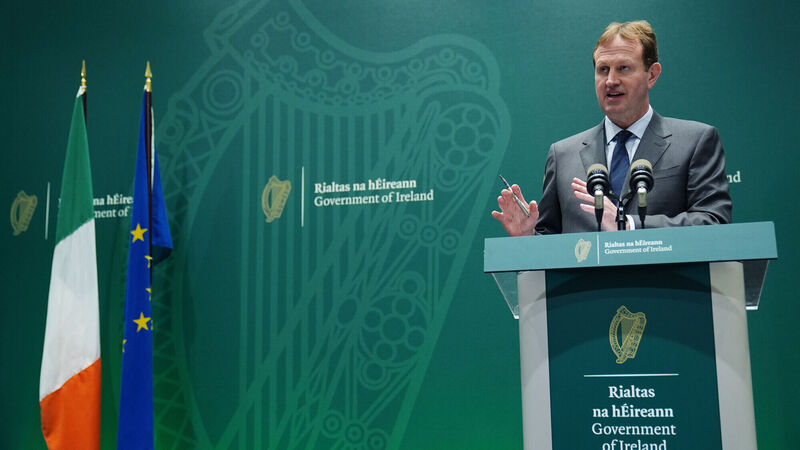Government tightens migration rules with five-year wait for citizenship

Minister for Justice Jim O'Callaghan speaking to the media at Government Buildings, Dublin, as proposals on stricter migration rules have been brought to Cabinet. Picture: Brian Lawless/PA Wire
The Government has approved sweeping changes to migration rules which will see those granted refugee status made to wait five years before applying for citizenship and could see migrants living in tents paying €1,000 a month if they earn enough.
Justice minister Jim O'Callaghan announced the changes on Wednesday, saying he was “not targeting asylum seekers” but wanted to slow Ireland's population growth rate.














